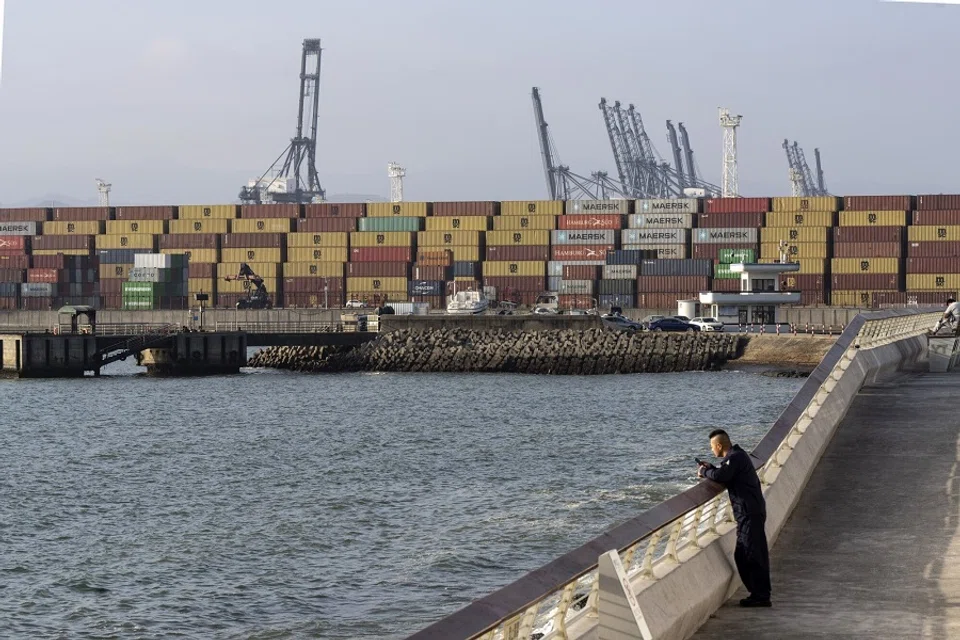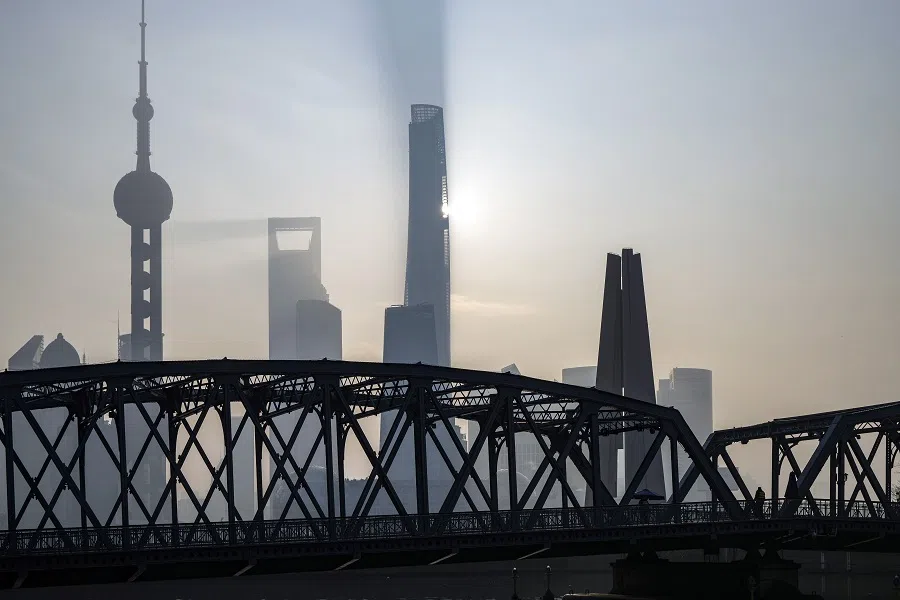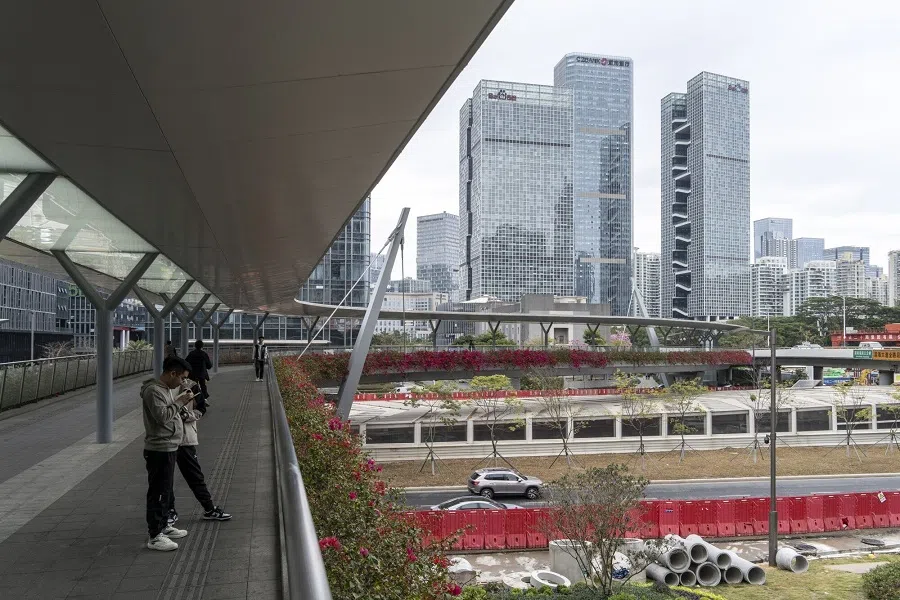The true state of China's economy: Capital flight, domestic consumption and US sanctions (Part 2)
In part two of his article taking stock of the Chinese economy and assessing bright spots and challenges in 2024, Chinese economist Yao Yang focuses on the key factors of increasing investment without distinguishing between foreign and domestic capital, and the inability of the US to limit China's technological development.

It is commonly known that investment, consumption and export - the "troika" of growth drivers - are very important in maintaining economic growth. The hottest topics in economics in 2023, such as capital flight from China, consumption downgrading and enterprises going international, are related to this.
The primary concern is reduced foreign investment. I think this view should be corrected - there is no need to distinguish between foreign and domestic capital. Investment should be regarded holistically.
... a comprehensive approach is necessary to boost investment. When the market turns favourable, capital inflow will take place regardless of its source.
No need to distinguish between foreign and domestic capital
Foreign investment includes not only investment by overseas enterprises but also reinvestment by foreign enterprises currently in China, for example, profitable foreign enterprises in China that are willing to continue investing their profits in China to expand their business and operations.
In 2023, there were reductions in both new foreign investment into China as well as reinvestment by foreign enterprises that have already been in China for years. We should also note that investment by China's private enterprises is also declining at the same time.
In fact, all enterprises are sensitive to and are the first to detect economic conditions, and will not invest in unfavourable conditions. Hence, a comprehensive approach is necessary to boost investment. When the market turns favourable, capital inflow will take place regardless of its source.
The key in 2024 is to enable investors to see hope in the future and to restore their confidence. It will be most important to improve the economy and drum up demand, which cannot be immediately achieved with a new policy or document.

For instance, China has front-loaded the 2024 bond quota in 2023 but there is a cycle in bond issuance. Projects must first be identified for spending on, and more funds must be raised from the market if the initial investment is inadequate during implementation.
As data shows that the proceeds of local government bonds rarely meet the full costs of projects, local governments will have to further open the channels for commercial debt. Only when both "front and back doors" are opened will smooth investment flow ensue.
Consumer spending not as weak as assumed
In 2023, consumption downgrading and the reluctance to spend were popular online topics among young people. However, data shows that consumption growth is evidently not slow. Why does this fallacy exist?
The reason for this is that real estate sales and local government procurement have declined, which have resulted in a tremendous drag on consumption.
According to the latest data released by the National Bureau of Statistics of China, the total retail sales of consumer goods reached 38.544 billion RMB (US$5.36 billion) in January to October 2023, a year-on-year increase of 6.9%. The retail sales of consumer goods other than automobiles reached 34,647.2 billion RMB, an increase of 7.0%. This growth is already excellent, except that it falls short of the expectation of explosive growth.
The reason for this is that real estate sales and local government procurement have declined, which have resulted in a tremendous drag on consumption.
Increasing demand is often talked about but it comprises two components: consumption and investment. This is because investment is also a form of consumption.
The discussion of exports, the third economic growth driver, is incomplete without mentioning the 2023 external environment. In the past year, the global economy was still in a downturn as Europe and the US faced severe inflationary pressures. Coupled with military confrontations, trade wars and diplomatic disputes between some nations, overall economic recovery was poor. The fall in overall demand has affected China's export and trade, both of which cannot be mitigated by China itself.
Chinese companies doing well internationally
Even so, many China enterprises that go international have become the highlight of 2023. On the evening of 29 November 2023, Pinduoduo surpassed Alibaba for the first time in intraday trading to become the largest China concept stock on the US stock exchange. In May 2023, China fashion e-commerce brand SHEIN, which was developing rapidly overseas, completed a new round of US$2 billion financing to achieve a valuation of US$66 billion. At the end of 2023, it was reported that SHEIN had secretly submitted its application for a US IPO, possibly in 2024. This shows that there remains a future for China enterprises going international.
As it is predicted that the economies of Europe and the US would remain in mild contraction, and that overall demand would be relatively poor in 2024, China's export would face great challenges.

As it is predicted that the economies of Europe and the US would remain in mild contraction, and that overall demand would be relatively poor in 2024, China's export would face great challenges. Despite this, China would have room to manoeuvre by rapidly adjusting its direction to deal with the changes. For example, a decade after the Belt and Road Initiative was proposed, the demand of developing nations increasingly accounts for China's exports.
The US cannot limit China's technological development
In 2023, some important technological startups also had great impacts on economic development. ChatGPT, born at the end of 2022, triggered new competition among the world's leading technology companies, and many of China's technology giants also joined the fray. There is concern that it will be difficult for China's economy to overtake that of the US if China falls behind in this competition.
In my opinion, this anxiety is unfounded because it is unnecessary for China to be top in every sphere. For example, China may be unable to catch up with ChatGPT but this is not due to inferior technology. It is because China's corpus is inadequate since the Internet is dominated by the English language and only 1% of online content is in the Chinese language. After all, the large language model (LLM) has to be trained using content material, and the quality of the eventual product is dependent upon the quality of the content material which in turn depends on its quantity.

Even if China is not number one in technology, it does not mean that it cannot improve its economy in future. China still ranks among the global frontrunners in many technological fields. For example, despite the imposition of export controls on many technologies, such as chips and semiconductors, by the US to limit and suppress China's development, China's enterprises still managed to achieve technological breakthroughs on their own.
In 2024, the problem before us is to increase the demand for investment and consumption. With sufficient demand, China's economy is expected to commence an upward cycle by mid-2024.
This clearly demonstrates that the restrictions by the US are a mistake and are unable to curb China's technological developments. The US is shooting itself in the foot by forcing China to innovate, an approach deemed erroneous even by Americans themselves. This is because knowledge and technologies today are ubiquitous and no longer monopolised by the US.
Ultimately, economic development is cyclical despite the disruption of the current economic cycle by Covid-19 in the previous few years. Eventually, it will bottom out and rebound.
In the next five to ten years, China's economic potential remains huge and it is not difficult to maintain 5% to 5.5% GDP growth as its economic fundamentals are sound. In 2024, the problem before us is to increase the demand for investment and consumption. With sufficient demand, China's economy is expected to commence an upward cycle by mid-2024.
This article was first published in Chinese as "经济稳定增长,首先要政策回归常态" on National School of Development, Peking University's Weixin account and Phoenix Weekly.

![[Big read] Paying for pleasure: Chinese women indulge in handsome male hosts](https://cassette.sphdigital.com.sg/image/thinkchina/c2cf352c4d2ed7e9531e3525a2bd965a52dc4e85ccc026bc16515baab02389ab)

![[Big read] How UOB’s Wee Ee Cheong masters the long game](https://cassette.sphdigital.com.sg/image/thinkchina/1da0b19a41e4358790304b9f3e83f9596de84096a490ca05b36f58134ae9e8f1)

